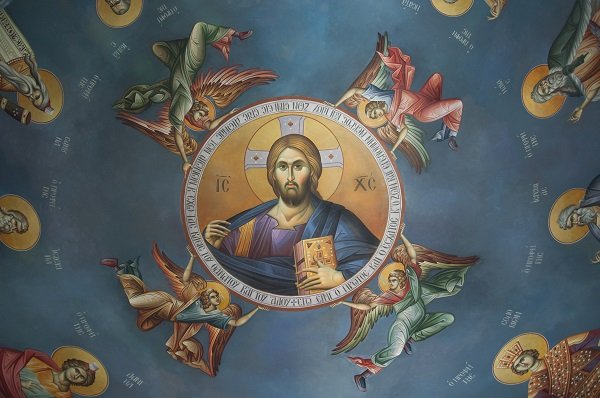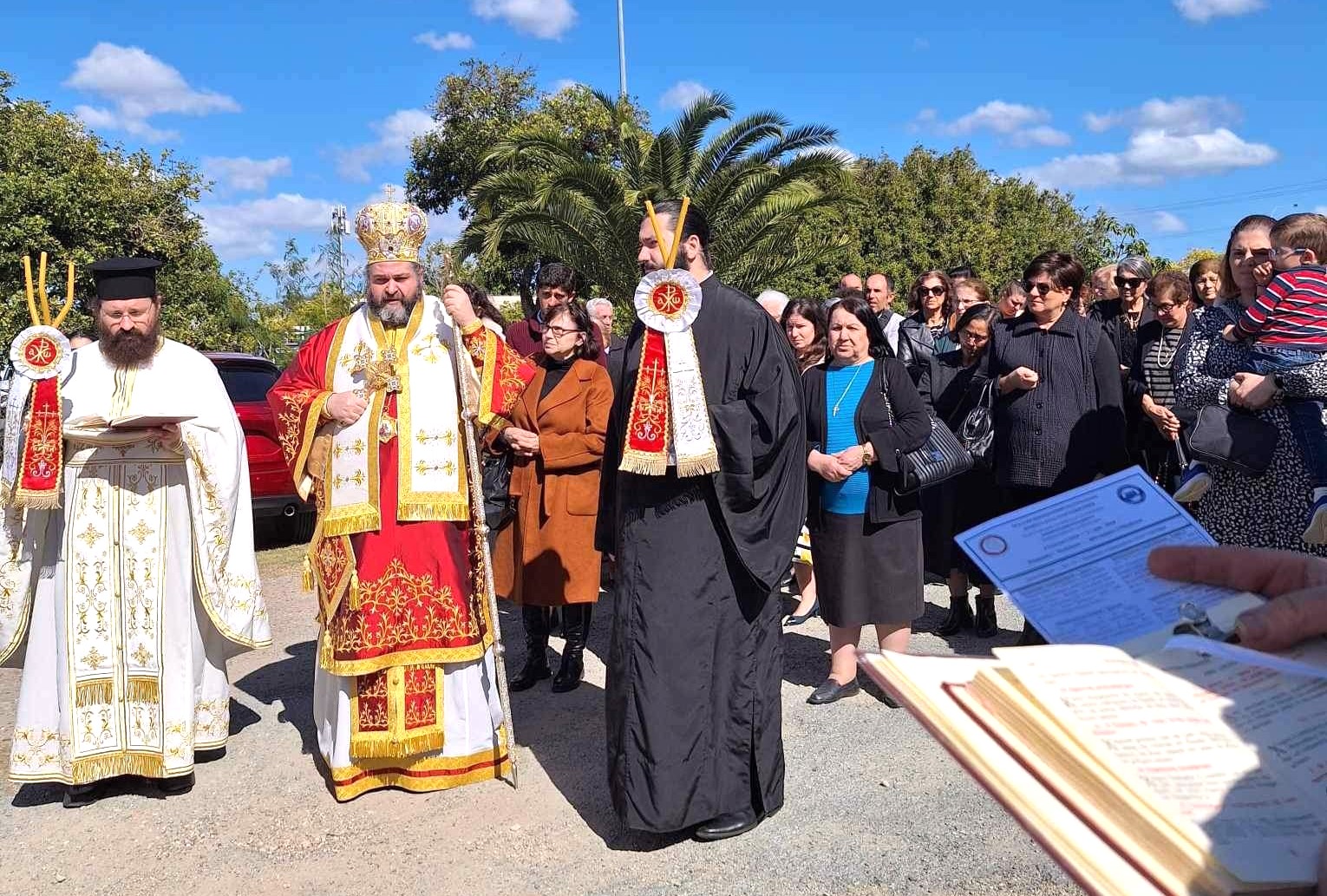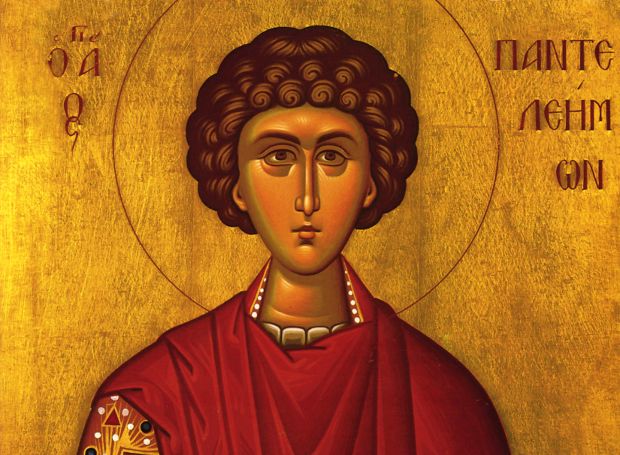‘Authorities’ in the world


The kingdom of Christ is ‘not of this world’, it’s not from here (Jn. 18, 36); it’s spiritual, not material. This is why Christ didn’t meet the millennial, messianic expectations of the Jews and was thus a disappointment to them. He preferred to be led to the cross and to overcome not an earthly enemy, but death itself, our pre-eternal enemy.
Christ had no problem with rendering ‘unto Caesar that which is Caesar’s’ (Matth. 29, 21; Mark 19, 17; Luke 20, 25). But he also emphasized that we should ‘render unto God that which is God’s’. For Christians, God’s will is paramount, even if it brings troubles upon them. For instance, the Church can’t abandon the gospel of the transfiguration of the human person and start to preach ‘a different gospel’, one adapted to the views of Caesar or people ‘of this world’. The Church can’t secularize its task by submitting to any authorities.
In one such case, the apostles declared before the Sanhedrin that they had to ‘obey God rather than people’ (Acts 5, 29). Christians recognize human governments, irrespective of whether the latter are Christian or not. They respect laws and pay honor to secular powers (Rom.13, 17; 1 Peter 13, 16); Titus 3, 1; Acts 22, 17, 29). Indeed, the Church prays for the leaders and officials of the state, so that peace and the rule of law may obtain, ‘that we may live a calm and peaceful life in all godliness and reverence’ (1 Tim. 2, 2).
Democracy
Orthodoxy is the pre-eminent society ‘with all the saints’, a community of faith, worship and life, which is an image of the life of the Triune God, that is unity, harmony and love. After the fall, we lost this harmony and loving relationship and began to lead a way of life ‘against nature’, which brought with it existential vacuums. In our efforts to find a way out of the existential impasse to which our autonomy has brought us, we’ve built special structures, among which are various forms of democracy.
In the ancient Greek concept, democracy meant that citizens participated in public affairs, the criterion being ‘what is believed in common’, that is, the tried and tested morals of the people. What we call democracy today, that is representative democracy, has little to do with ancient Greek democracy. Indeed, when this democracy is defined by dogmatic pluralism in which all values and hierarchical structures are abolished, or where even the distinction between good and evil isn’t observed, then we have the opposite, or, rather, the perversion of democracy in its original concept.
Democracy as an achievement of autonomous people with the aim of solving the problems caused by their autonomy is viewed positively by Orthodoxy. But these structures can’t enable people to overcome their egotism be it personal, factional (party allegiance) or even national. What can’t be achieved by autonomous people can be accomplished only in the new reality of the Church of Christ.
In the person of Jesus Christ, God made his scattered children one (‘one in Christ’) and made them ‘members of one another’. In this way, the Church transcends all forms of absolutism, as well as all forms of modern democracy, which Christians consider very deficient.
The outlook of the faithful is the same as that of Christ, who, because of his love, emptied himself, in freedom, in order to elevate human beings. The faithful who, in the Church, experience this kenotic love in freedom transcend the notion of ‘individual rights’ and stop putting themselves at the center. This love ‘is not self-seeking’.
All Christians participate in ‘public life’, that is the life of the whole body of the Church. Any talents they’ve been given aren’t to be used for themselves but for the enlargement of the body of the Church. In the Orthodox Church, there’s nothing private in the context of the life of the body of the Church; each person contributes to its augmentation and increases along with it.
This participation by each of the faithful in the life of the Church, its enlargement and augmentation, which is the fruit of love and freedom, doesn’t represent a reduction of the human person, but rather its elevation.
The social responsibility of Christians.
Christians are called upon to be free as regards the world. In the end, everything is dross (‘detritus’) for them in relation to the sole treasure, Christ (Philippians 3, 8). But this doesn’t give them the right to dismiss their responsibility for the fate of the world and the problems of their brethren.
This duty derives from our very nature as human beings, from the fact that we’re ‘in the image’ of the Triune God. Our purpose as Christians is to live ‘in the image’ of God, that is in a trinitarian manner, with the life of the three divine Persons as our model. This requires that we live with our brothers and sisters or, better, ‘in our brethren’, because the Father is ‘in the Son’, and the Son ‘in the Father’ just as the Holy Spirit is eternally ‘in the Father and in the Son’ (cf. Jn. 17, 21). This is the reality the faithful are called upon to experience at the divine liturgy and to transfer to their daily activities (cf. 1 Cor. 3, 16-17).
At the divine liturgy, the faithful and the whole of creation experience their lost unity again. Everything is taken into the sanctified body of Christ. Everything is again offered to God in gratitude (cf. Zech. 14, 20-21): ‘let us commend ourselves and others and all our life to Christ our God’. This is a prayer which is repeated at the divine liturgy. There’s no room here for selfishness. ‘Christ our God’ is again the center, of us, of our brother and sister and of the whole of our life.
Christ appears every day in the person of our brethren. He awaits the fruits of our efforts and labors. The faithful should commend ‘to Christ our God’ the whole of their life, all their powers and abilities, in the most practical way: through their brothers and sisters (Mark 25, 40), placing these talents at the disposal of the brethren of Christ.
This means that our talents, as well as the potential which derives from our real nature (being made ‘in the image of God’ aren’t centered on our selfish interests, but on loving Christ through other people. As images of God, we share his all-wiseness and all-powerfulness (cf. Gen. 1, 28; Ps. 8, 1-10; Sirach17m 2, 4; Wisdom 3, 2). But this all-wiseness and all-powerfulness can’t function independently of love and can’t be an aim in themselves. Were this to happen, it would be a demonic situation, an alien state and an unnatural intervention in God’s creation
Saint Paul says tellingly that even if he spoke all human and angelic languages, if he knew every secret, all knowledge, if he had the strength to move mountains, this would be to no avail if he didn’t also have love (1 Cor. 13, 1, 2). And Saint James, the brother of our Lord, distinguishes between the wisdom ‘from above’ and ‘earthly, unspiritual and demonic wisdom’. ‘The wisdom that comes from above is first of all pure; then peace-loving, considerate, submissive, full of mercy and good fruit…’ (James 3, 15, 17).
The social responsibility of Christians flows from human nature itself, from the Christian view of people. Its deep foundation is the very existence of humankind as having been made ‘in the image’ of God. It’s on this basis that we must rest the participation of all Christians in addressing the problems of their brothers and sisters and of society as a whole.
The word of God calls upon us to weep with those who weep (Rom. 19, 15), but our efforts to provide effective help to our brethren isn’t merely the result of emotion, but springs from our nature itself.
The social responsibility of the faithful is considerable and is translated into practice by addressing specific needs: ‘If a brother or a sister is without clothes and daily food and if one of you says to them, “Go in peace; keep warm and well fed,” but does nothing about their physical needs, what good is it? (James 2, 15-16; cf. Is. 58, 1-14).




